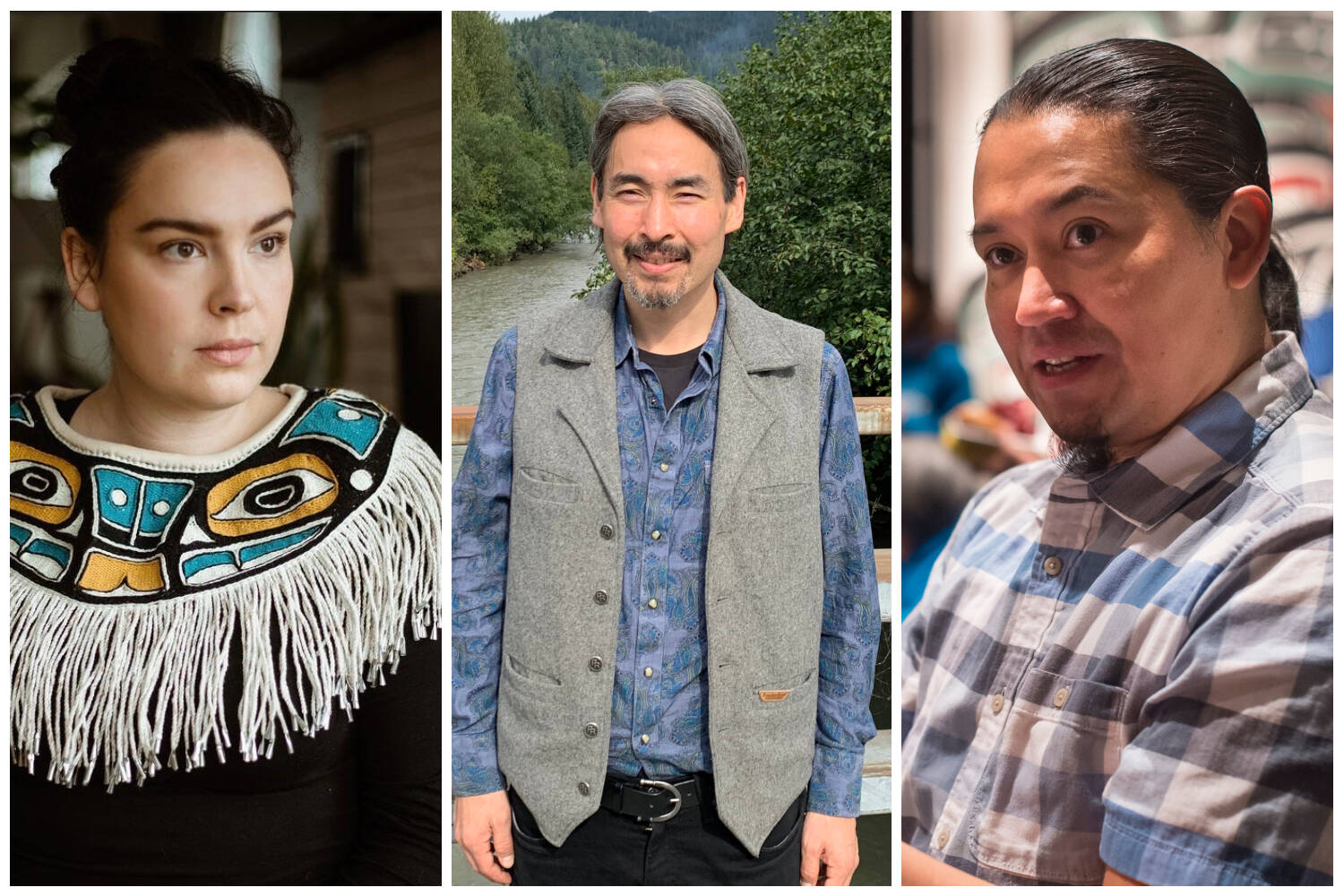By Therese Pokorney
After Sydney Akagi took her first Ravenstail weaving class in 2017, she didn’t think her career path would change. Three years later, Lily Hope, Akagi’s weaving teacher, gave her the push she needed to leave her job at the Sealaska Heritage Institute.
“‘Quit your job and weave,’ she said, and in January of 2020, I put in my two weeks notice,” Akagi said.
Not only did Hope encourage Akagi to follow her dreams, but she also encouraged her to apply to the Rasmuson Foundation’s 2021 Individual Artist Awards. Akagi, along with three other Juneau-based artists, received a grant to help support her projects. Last year, Hope was a recipient of an artist award to support her weaving projects.
[Hayes receives prestigious Distinguished Artist honor]
Of nearly 300 applicants from the state, 10 received fellowships worth $18,000 and 25 received project awards worth $7,500. The artists represent 21 Alaska communities and nine artistic disciplines such as writing, weaving, filmmaking, puppeteering and choreographing. In May, the foundation announced Tlingit author Ernestine Saankaláxt’ Hayes as the foundation’s Distinguished Artist, which comes with a $40,000 award.
Akagi will use her project award to create a full-size Chilkat ceremonial robe and will document her work through her other passion: photography. It will take approximately 900 hours for her to complete the robe, and she plans to work on it for 30 hours a week.
Though her training originated in Ravenstail weaving, Akagi prefers the Chilkat style due to the unique shapes and patterns seen in the robes.
“I feel like I can draw more with my weaving, and I feel like you can differentiate Chilkat robes because you can see the artists’ designs more clearly,” she said. “You can tell who was doing it. You can make similar designs, but no one draws a circle the same.”
Writing wrongs
Another Juneauite’s dream is being made accessible thanks to the artist award. Xʼunei Lance Twitchell received an $18,000 fellowship so he can bring a story he heard from his language teachers to life. While collaborating with two other Indigenous screenwriters, Twitchell will produce a screenplay in Lingít about two brothers who escaped from a Native American boarding school.
Twitchell is a poet, language revitalization advocate and an associate professor of Alaska Native languages at the University of Alaska Southeast. Although researching Native languages is part of his career, stories from elders and linguists — such as Marge Dutson and Michael Krauss, respectively — have encouraged him to record and tell them.
“When I met Dr. Michael Krauss, he told me ‘You have got to go to these elders and hear what happened to them,’” Twitchell said. “If you don’t have a firsthand account, people won’t believe you. They won’t believe all the terrible things.”
Because a lot of his work deals with racism and cultural genocide, Twitchell said creative outlooks like playing music and writing poetry help keep him balanced.
Like Twitchell, Ishmael Angaluuk Hope, the other local recipient of a $7,500 project award and husband of weaver Lily Hope, also uses writing in a cathartic way.
As a distinguished poet and author, Hope is using the grant to create “Yéi Áyá Yaxh Shutaan: This is How It Ends,” an epic in Lingít and English about a Native man and his family coming to terms with the end of the world.
Hope said the epic might have alternate dimensions, spirit creatures or people with superpowers and psychic abilities. The goal for Hope, however, is that his work has a lasting impact on his readers.
“For me, it’s not about who I know but it’s that I’m well known for doing quality work,” he said. “If you write something that people want to go back to, that has staying power. That’s important to me.”
Hope is also the writer for the adventure video game Never Alone, also known as Kisima Innitchuna (I am not alone). He has incorporated stories from his relatives, Alaskan Native elders from Kotzebue, with video gaming to create a storyline that delves into the traditional lore of the Iñupiat people.
Though busy with telling stories, writing, and finding inspiration through literature, Hope would like to finish the epic by summertime. Besides having more time, Hope would like to see more funding going toward the arts — especially in Alaska.
“Time is a huge gift. I think the Rasmuson Foundation is wonderful, but there should be more and more and more. That’s where the money should go — to the arts.”
• Therese Pokorney is a freelance reporter currently based in Juneau. She can be reached at tbpoko@gmail.com

